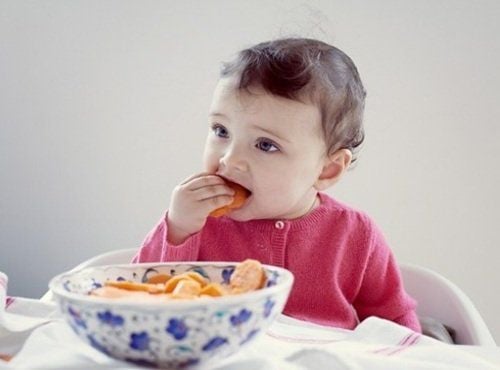This is an automatically translated article.
Nurturing young children is not an easy job, this job requires you to have basic knowledge about nutrition and child development at each stage. Children's development is assessed by many factors, many different criteria. In which physical development is usually assessed by height and weight index. So how much weight does a 15-month-old baby weigh?
1. How much does a 15-month-old baby weigh?
The body of a 15 month old baby will undergo significant changes. Children's ability to move, learn and express emotions will be much better.
The baby's digestive system is still developing when the baby is 15 months old, this process happens in parallel with the teething process. Usually a 15-month-old baby will have 11 baby teeth.
For children at this stage, the worrying thing is the risk of children having rickets, stunted growth due to calcium and vitamin D deficiency. At that time, the child will have delayed teething, hair loss in the shape of a scarf, the child does not sleep well, or cries at night,...
At the same time, the child may show signs of anorexia leading to delayed weight gain, even at risk of obesity. malnourishment without adequate supply of necessary nutrients.
According to the height and weight table of children published by the World Health Organization (WHO), the weight standards of a 15-month-old baby will be as follows:
The weight standard of a 15-month-old girl is:
Malnutrition: If the weight is less than 7.7kg. Risk of malnutrition: If you weigh less than 8.5kg. Normal: Weight about 9.6kg. Risk of obesity: If your weight is over 10.9kg. Obesity: If your weight is over 12.2kg. The standard weight of a 15-month-old boy is:
Malnutrition: If the weight is less than 8.4kg. Risk of malnutrition: If the weight is less than 9.2kg. Normal: Weight about 10.3kg. Risk of obesity: If your weight is over 11.6kg. Obesity: If your weight is over 12.7kg. Thus, a 15-month-old baby weighing 7-8 kg and the baby being a girl may be at risk of malnutrition or malnutrition depending on the actual weight of the baby. If a 15-month-old boy weighs only 7-8 kg, he is malnourished. In both of these cases, you need to take your baby to the doctor to find out the cause and have the appropriate treatment.

Các bữa phụ nên cho trẻ 15 tháng ăn hoa quả như là chuối, đu đủ...
2. What should a 15-month-old baby eat?
15-month-old babies are still developing rapidly both physically and mentally, so the diet needs to provide enough energy for the baby to gain weight and enough nutrients for the baby to be healthy.
Regarding the number of meals, children need to eat 5 meals a day including 3 main meals and 2 snacks, children still need to continue to breastfeed. If the baby has stopped breastfeeding, you should give the baby more formula, or fresh milk. Snacks should be given to children to eat fruits such as bananas, papayas, sapodilla, mangoes, oranges... and yogurt, cheese...
Amount of food during the day to ensure the baby's nutritional needs 15 months old need:
Rice (cooking porridge): 120 - 150 g. Meat (or fish, shrimp...): 100 - 120 g, a week should give children 3-4 eggs (both whites and yolks). Milk 500ml (if the baby has stopped breastfeeding). Oil (fat): 20 - 30g (equivalent to 4-6 teaspoons of 5 ml). Green vegetables: 50 - 80g. Ripe fruit: 100 - 120g. To help your baby eat deliciously and provide many nutrients, you should prepare it in the following way: Cook a pot of white porridge, then scoop a bowl into the saucepan at each meal, then add meat (such as meat) beef, chicken, pork) or fish, shrimp, eggs with green vegetables, cooking oil or fat.
For children to increase height, you should give your baby foods that contain a lot of calcium (such as crab, shrimp, cheese, yogurt) and iron and zinc (such as meat, eel, heart, yogurt). Note that along with the diet, you need to increase your baby's outdoor play so that exposure to sunlight helps to metabolize vitamin D and absorb calcium better, thereby preventing rickets.
In addition, it is still necessary for children to drink enough water because young children have a higher need than adults (average 100 ml/kg body weight/day), especially in hot and sunny seasons, so give them more water to drink. .
3. How to take care of a 15-month-old baby properly?
Let children practice chewing food: You should let your child practice chewing food, if your child likes to eat big pieces, encourage them to chew because many children over 2 years old still cannot chew food even though this is the stage of other children can chew well. Develop a scientific eating plan for children: Most children at 15 months prefer to eat snacks rather than foods in the main meal. Therefore, you need to plan a scientific diet to form habits later. Children should eat 3 main meals and 2 snacks with healthy foods so that the baby's body can fully absorb the nutritional content.
Let's teach children the habit of eating on time. The ideal time for daily eating is lunch between 10-11 o'clock and dinner at 17 o'clock.
Suggested menu for a nutritious 15-month-old baby: Breakfast: Meat porridge, shrimp, toast and vegetable soup. Lunch: Noodles, eggs and salad Dinner: Rice and meatballs (or fish) with vegetable soup. Notes in the process of preparing food for children: Limit the use of sugar and salt in food. Let's practice for children to eat light instead of salty, should only give about 1/4 teaspoon of salt. Should use vegetable oils such as soybean oil, sesame oil... will be better than using animal fat. You should cook porridge and let your baby learn to eat crushed rice. In addition, to protect your baby's health, you should: Give your baby a scientific way to eat, drink, and sleep, and avoid letting them play with children who have colds or other infectious diseases. Teach your baby the habit of washing hands before eating with other useful habits. Do not forget to explain to help your child understand the importance of what he does.

Nên cho trẻ 15 tháng tuổi tập nhai thức ăn
4. What can a 15-month-old baby do?
In the 15th month, your baby will perfect more skills in which:
15 month old baby can stand and walk steadily. Baby will love to rummage, explore everything, every nook and cranny in the house. At this age, children also begin to articulate single words and know how to call their parents. Therefore, you should play with your baby more and teach him to speak as well as memorize and get used to all things. 15-month-old baby loves to communicate with people around. This is the time when the baby develops independence and forms the most obvious personality. The most obvious manifestation is that children are stubborn and refuse to listen to their parents. At this time, you need to gently explain and talk to your baby to better understand because the 15-month-old stage is when children can fully understand through the attitude of adults. In addition, a 15-month-old baby needs 5mg of elemental zinc/day to eat well, reach the correct height and weight and exceed the standard. Zinc plays a role in affecting most biological processes taking place in the body, especially the breakdown of nucleic acids, proteins... Organs in the body when zinc deficiency can lead to a There are a number of diseases such as neurological disorders, irritability, etc. Therefore, parents need to learn about the role of zinc and guide them to appropriate zinc supplements for their children.
In addition to zinc, parents also need to supplement their children with other important vitamins and minerals such as lysine, chromium, B vitamins,... errands.
Please regularly visit Vinmec.com website and update useful information to take care of your baby and family.













